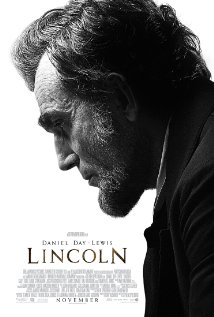Since Steven Spielberg’s Lincoln arrived in theaters, I’ve been asking myself: Is the depression issue adequately addressed?
The 16th president is a hero of mine because he showed depression sufferers how to rise above the despair and even turn it into a powerful ally. In fact, it was the subject of one of my first posts when I started this blog.
Mood music:
[spotify:track:0WKNW7g0aTpenB8jdsxlfD]
Lincoln lived through horrific episodes of melancholy in an age where there were no meds to help take the edge off. Rather than succumbing to the scourge and taking his own life, though he did consider it more than once, according to Lincoln’s Melancholy by Joshua Wolf Shenk, he developed layers of coping tools that carried him through terrible periods of grief, which included the loss of two children (Willie Lincoln died in the White House barely a year into his father’s presidency) and the darkest days of the Civil War.
When I first saw previews for Lincoln, it was clear that the film would focus on the fight for the 13th Amendment to the U.S. Constitution, which finally outlawed slavery. But it was unclear how much we’d see Lincoln dealing with the melancholy.
I’m happy to report that it tackled that part of Lincoln’s greatness to my satisfaction.
We see Lincoln’s difficult relationship with his wife, Mary Todd Lincoln. We see him putting his personal grief aside to comfort his youngest son, Tad, who still struggles with the loss of his brother. We see him standing firm in the face of heated opposition over the 13th Amendment, which many in his own circle consider a daft distraction from the business of ending the Civil War.
His coping mechanisms are on full display, especially his sense of humor and writing. We see him telling off-color stories during moments of high tension. We see him using the power of writing to rally himself and his countrymen through the obstacles ahead.
Daniel Day-Lewis really does an inspiring job capturing those strengths.
The movie isn’t perfect. Like most books and films dealing with Lincoln, the president is portrayed in an almost Christ-like manner, glossing over flaws the man certainly had.
The film shows Lincoln pushing to end slavery as a simple matter of morality when a deeper read of history shows that, at the beginning of the Civil War, he was perfectly willing to allow slavery to survive in the South under certain conditions. Keeping the Union together was his primary goal from the outset, not abolishing an evil institution. His parenting also left much to be desired, when you consider how he kept a certain distance from oldest son Robert and coddled Tad almost to the point of spoiling the boy. Meanwhile, certain civil liberties took a beating under Lincoln. He suspended the writ of habeas corpus, paving the way for unlawful detentions, as one of my libertarian friends often points out.
But I can forgive Spielberg. Lincoln was an imperfect person, as we all are, but his evolution as a human being was profound and inspiring — especially his growth in tackling depression. The movie captures it well.
Go see it.

